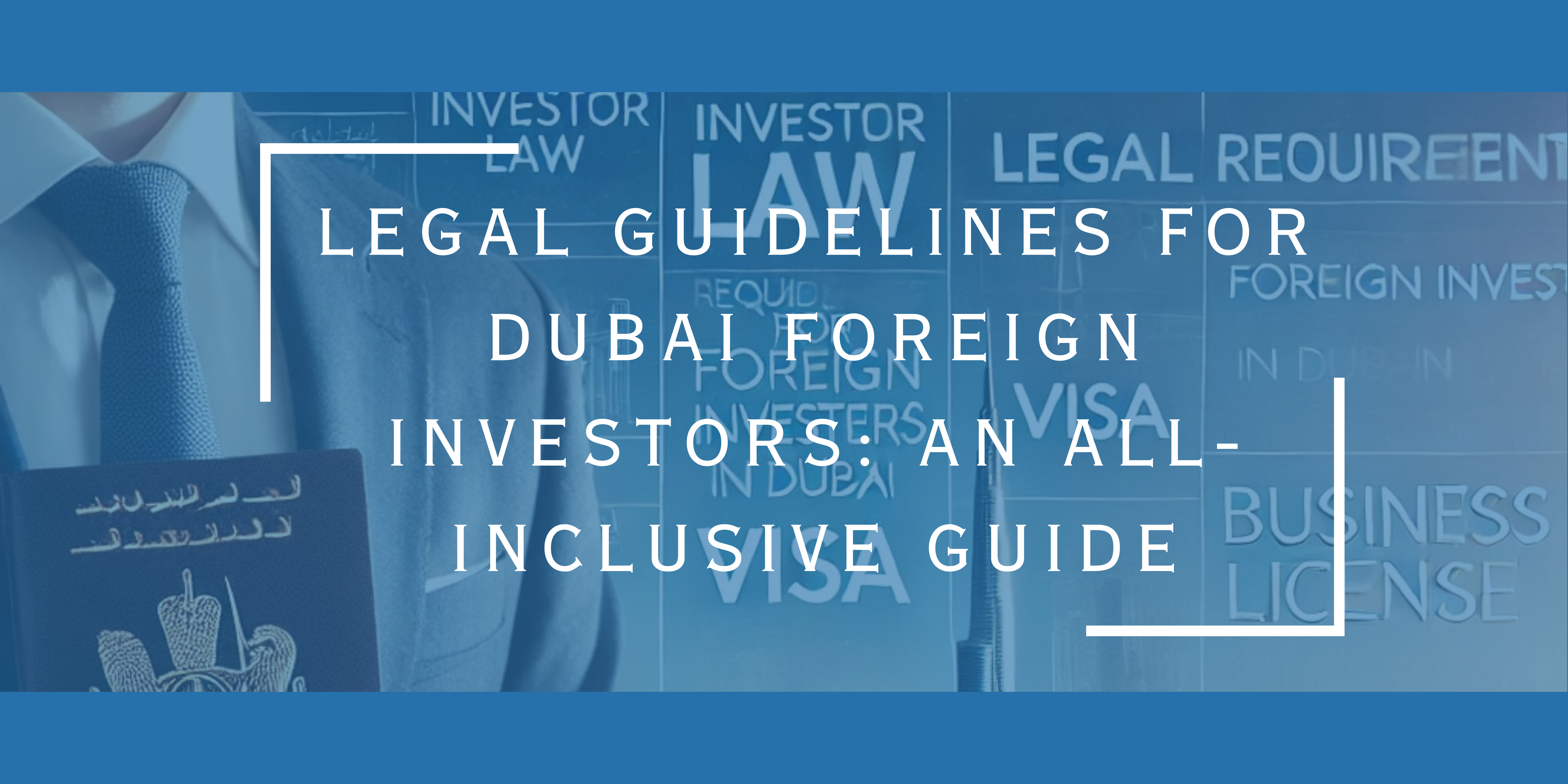 Business Setup
Business Setup
Legal Guidelines for Dubai Foreign Investors: An All-Inclusive Guide
Dubai's strong economy and business environment help it to be a top choice for foreign investors. One must understand the legal obligations if one is to flourish in this ever-changing market. This is a simplified road map for negotiating Dubai's legal terrain for overseas investors.
1. Selecting a Company Model
Foreign investors have many choices for their business structures:
- Traditionally needed a local partner, LLC (Limited Liability Companies) now allow 100% foreign ownership in many different fields.
- Branch office: An expansion of a foreign company already in business in Dubai.
- Free Zone Company limits trading directly within the UAE market but permits complete foreign ownership and provides tax incentives.
2. Business License
Every company in Dubai has to get the necessary license depending on its operations if it is to run legally:
- Commercial License for Trade Activities
- Professional license for companies with services-based models
- Manufacturing operations' industrial license
3. Funds Needed
Various industries could have particular minimum capital requirements. For those trying to reduce initial investment, many Free Zones are appealing since many of them do not have minimum capital requirements.
4. Immigration and Visa
Living and working in Dubai requires foreign investors to have a visa. Free Zones usually offer simplified visa processing; the Golden Visa offers long-term residency options.
5. Taxes
For most businesses, Dubai boasts no corporate income tax. But several goods and services are subject to a Value Added Tax (VAT) of 5%. If annual taxable supplies are more than AED 375,000, companies have to register for VAT.
6. Labor Regulations
Compliance with UAE labor laws is required whether or not you intend to staff. This covers offers of end-of-service benefits, fair wages, and employment contracts.
7. Corporate Account for Banking
Managing business finances calls for a corporate bank account establishment. For this procedure you will need your company license, passport, and other corporate records.
8. Protection of Intellectual Property
Register copyrights, patents, or trademarks to protect your ideas with the Ministry of Economy. This guarantees Dubai upholds of intellectual property rights.
9. Industry-Specific Laws
Some industries, including healthcare and finance, call for further regulatory body approvals. If your company fits into one of these categories, you must first become familiar with these criteria.
In Summary
Dubai's investor-friendly policies offer great chances for development; but, success depends on knowing the legal framework. Following these rules will help you to properly start and grow your company in this active market.













Comments (0)
{{ obj.comment_user_info.fullname }}
{{ obj.date_formatted }}{{ expandedComments[index] ? obj.comment : obj.comment.slice(0, 50) + (obj.comment.length > 50 ? '...' : '') }}
Add Comments
Login to comment